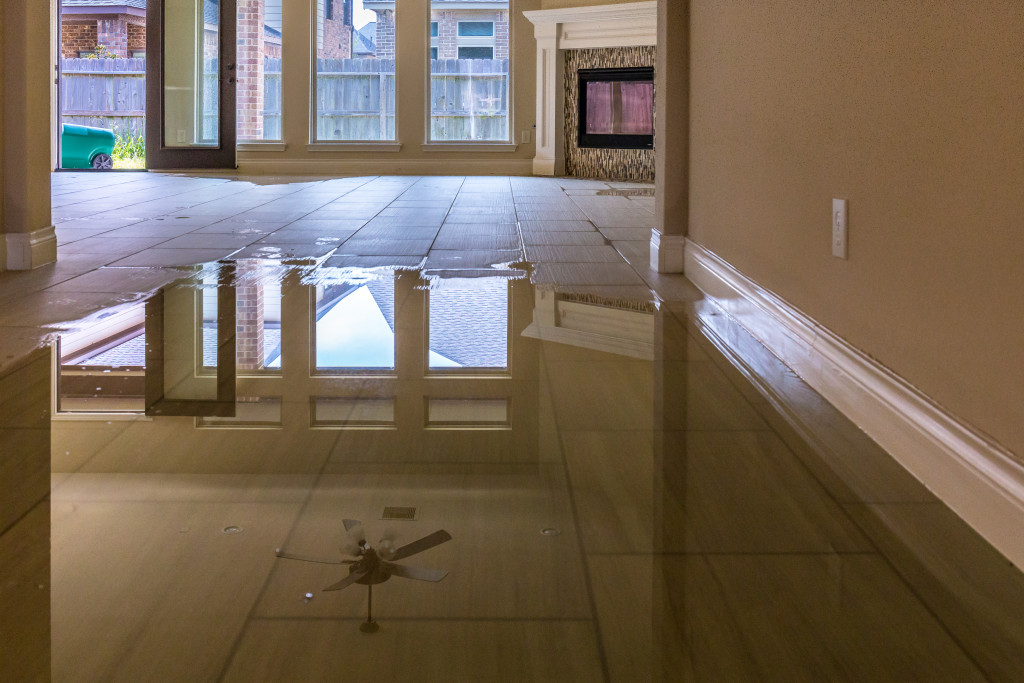- Regular plumbing maintenance and replacement can prevent leaks and subsequent water damage.
- Installing water detectors near appliances and using efficient landscaping helps avoid water accumulation.
- The right gutter system and regular maintenance can effectively divert rainwater away from your home.
- Consistent water heater upkeep can help prevent malfunction, leaks, and potential water damage.
Your home is not just made up of four walls but memories and moments that you want to keep safe and secure always. Water damage is one of the biggest threats to your home’s safety. It not only damages building materials and furniture but can also lead to the growth of mold, which can be hazardous to your health.
Water damage can occur due to various reasons, including leaky pipes, natural disasters, and malfunctioning appliances. You never know when water damage can occur, and prevention is always better than cure. Here are essential tips you can follow to prevent water damage in your home and keep your property safe.
Regular Maintenance of Plumbing.
The most common cause of water damage is leaky pipes that are not fixed on time. Leaky pipes can cause mold growth, rotting building material, and weakened foundations. Regular maintenance of the plumbing system helps identify leaks early and prevent them from turning into more significant problems. Changing the pipes every 15 to 20 years also prevents rusting and weak points.
Install Water Detectors.
Water detectors are a small investment that can help you save thousands of dollars in potential water damage costs. These detectors detect water leaks and alert you instantly to shut off the water supply, preventing damage to your property.
You can install these near water heaters and washing machines or in the basement to detect water leaks. You can even get a Wi-Fi-enabled detector to be notified even when you are away from home.
Proper Landscaping.
Poor landscaping can result in water accumulating near the foundation of your home, leading to flooding and seepage. To ensure your landscaping is preventing water damage, follow these four essential steps:
Make sure the ground slopes away from your home.
Making sure the ground slopes away from the foundation of your home and not towards it is essential. This ensures that water flows away from the foundation and does not pool near it, leading to flooding and seepage.
Plant shrubs and trees far from your walls.
Planting shrubs and trees at least five feet away from your home’s walls can prevent roots from penetrating through them. In extreme cases, these roots can damage the pipes and bricks, leading to water damage.
Install efficient drainage systems.
Well-designed drainage systems in your landscaping, such as French drains or dry swales, help collect excess water and direct it away from your home. Installing these can prevent flooding and other forms of water damage to your property.
Cut down on heavy irrigation.

Heavy irrigation can damage your foundation over time and lead to water seepage. Minimizing the amount of water used in your garden helps prevent this damage from occurring.
By ensuring your landscaping is properly maintained and designed, you can prevent water damage from occurring in your home.
Choose the Right Gutter System.
Gutter systems are designed to divert rainwater away from your home. The right gutter system will work most effectively in all types of weather. A seamless gutter system is preferred for its strength and effectiveness in preventing water damage from clogged gutters.
If you already have this type of gutter system installed, make sure to clean it regularly. You should also call in a seamless gutter repair service provider if you notice any issues with it. They can help you identify any problems with the system and make necessary repairs and replacements. They can also recommend preventive solutions for the future.
Regular Water Heater Maintenance.

Water heaters can malfunction and cause water damage if not maintained regularly. Water heaters can develop leaks, rust, and corrosion, causing them to fail. Regular maintenance can detect these issues and prevent damage to your home. You can also set the water heater’s temperature to 120 degrees Fahrenheit to prevent overheating. You should also regularly check for any signs of corrosion or rust around the tank.
Safeguarding your home from water damage is an ongoing process that requires consistent maintenance, preventive measures, and a proactive approach. By implementing these tips, you can significantly reduce the risk of water damage and protect your home’s structural integrity.
Remember, reacting promptly to early signs of water damage can save you from severe losses down the line. Don’t wait for a disaster to strike before taking action. Keep your home safe, secure, and dry by being proactive about water damage prevention.

